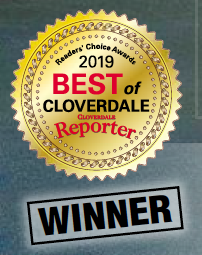- 604-362-9571
- Monday - Sunday
Blog
How Important Is Protein? All Your Protein Questions Answered
- by Michelle
- April 21, 2011
There are many misconceptions floating around regarding the importance of protein and many people are not aware of foods that are high in protein or how much they should be eating per day for their body type. This is a topic that could be discussed in great detail on a specific person by person basis; however, this article is going to answer the most common questions related to protein and protein supplementation.
1.) What is protein and why do I need to eat it?
– Protein is very commonly referred to as “the building blocks of muscle” meaning in addition to providing the body with energy, protein provides structure to all the cells and tissues of the body. Furthermore, the body constantly breaks down protein, uses new protein to re-create the structure of the cells, and is responsible for transporting nutrients and keeping the immune system healthy.
2.) How much protein should I be eating each day? Should I be eating more on days that I workout?
-Protein intake should be calculated based on an individual’s caloric intake and should comprise approximately 10 to 35 percent of daily calories, with the remainder of calories coming from carbohydrates and fats. A more precise way to calculate protein needs is by body weight. An adult should be trying to consume 0.8-1g of protein per kg of body weight. For example, a 150-pound adult should be eating approximately 55g of protein per day. Some scientific studies have found that an increase in physical activity level can increase the bodies need for protein; however, many variables including exercise duration, type, intensity, and frequency must be looked at more closely in order to determine whether excess protein supplementation is required. Before changing your diet or protein intake, consult your physician to assess individual needs.
3.) What foods are the best protein sources?
-There are two different types of proteins-essential and nonessential, also referred to as complete and incomplete. Protein is made up of substances called amino acids, which all link together to form chain inside the body. With the total of 22 existing amino acids, the body can only breakdown 13 of them, which are the “nonessential” and the other 9 cannot be broken down by the body and are the “essential” amino acids. Foods that contain all 9 of the essential amino acids are also known as “complete proteins” or “high-quality” proteins and these are the best sources of protein to be adding to your daily diet. Proteins missing 1 or more of the 9 essential amino acids are known as “incomplete” proteins and are usually found in plant sources; therefore, different plant sources must be combined together to supply the necessary amino acids to the body.
Examples of complete proteins:
- Meat
- Poultry
- Eggs
- Milk
- Cheese
- Fish
Examples of incomplete proteins:
- Beans
- Peas
- Nuts
- Grains
- Vegetables
4.) Should I be using protein supplements if I work out?
-Protein supplements, such as protein powders, can provide improved recovery post-workout, increased pre-workout energy, and improved nutrition for vegetarians or those who may be at risk of nutrient deficiencies in their daily diet. Athletes and non-athletes use protein supplementation before and after a workout to improve muscle recovery and increase muscle strength and size, as this is a great way to ensure you are providing the body with the protein it needs to power through a workout as well as recover right after. As mentioned earlier, protein requirements depend on each individual’s carbohydrate and caloric intake, fitness level, exercise type and intensity, and frequency of exercise. Taking a protein supplement can be harmful if you are not exercising enough to use all the protein you are consuming, so be sure to see your physician before changing your diet.
Email Michelle@CORE-Condition.com for more information regarding protein requirements and the best sources of protein to be adding to your diet.
Michelle Roots BA Kin, CSCS, PES






